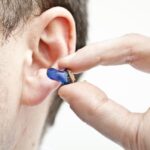Overcoming addiction is a complex and challenging process, but it is achievable with the right support and resources. One increasingly popular and effective approach to treating substance use disorders is Medication-Assisted Treatment (MAT). MAT combines medication with counseling and behavioral therapies to provide a well-rounded and evidence-based plan to help individuals achieve recovery. This article will discuss the benefits of Medication-Assisted Treatment and how it can significantly improve recovery outcomes.
Reduced Cravings
Medication-Assisted Treatment has been shown to significantly reduce drug cravings, which can make it easier for individuals to focus on their recovery process. So, instead of being constantly distracted by cravings and urges, MAT can help individuals stay focused on making healthy life decisions. And with the help of qualified healthcare professionals for Medication Assisted Treatment in Fort Lauderdale, individuals can receive the support they need to make effective use of these medications and stay motivated to maintain their recovery goals.
Improved Withdrawal Management
MAT can also reduce the severity of withdrawal symptoms, which can help make the recovery process more manageable and comfortable. The use of MAT medications such as buprenorphine and naltrexone can help manage both physical and psychological withdrawal symptoms. This makes it easier for individuals to go through detoxification and focus on their recovery goals without being overwhelmed by the symptoms of withdrawal.
Holistic Approach to Recovery
Individuals in Medication-Assisted Treatment programs do not rely solely on medications; instead, they also participate in counseling and behavioral therapy. This holistic approach allows individuals to address the underlying emotional and psychological issues that contribute to their addiction, making it more likely that they will achieve lasting recovery. For example, you may check out how women quit heroin with MAT.
Increased Treatment Retention
Studies have shown that individuals participating in Medication-Assisted Treatment programs have significantly higher retention rates than those in non-MAT programs. With higher retention rates, there is a greater likelihood of successful recovery and a reduction in relapse rates.
To Sum Up
Medication-Assisted Treatment is an evidence-based and highly effective approach to treating substance use disorders by combining the use of medications, counseling, and behavioral therapies. With benefits such as improved withdrawal management, reduced cravings, enhanced mental health support, and increased treatment retention, MAT has made a significant impact on the lives of individuals struggling with addiction. If you or a loved one is battling addiction, considering Medication-Assisted Treatment as a part of your recovery plan can help pave the way toward a healthier, happier future.

















